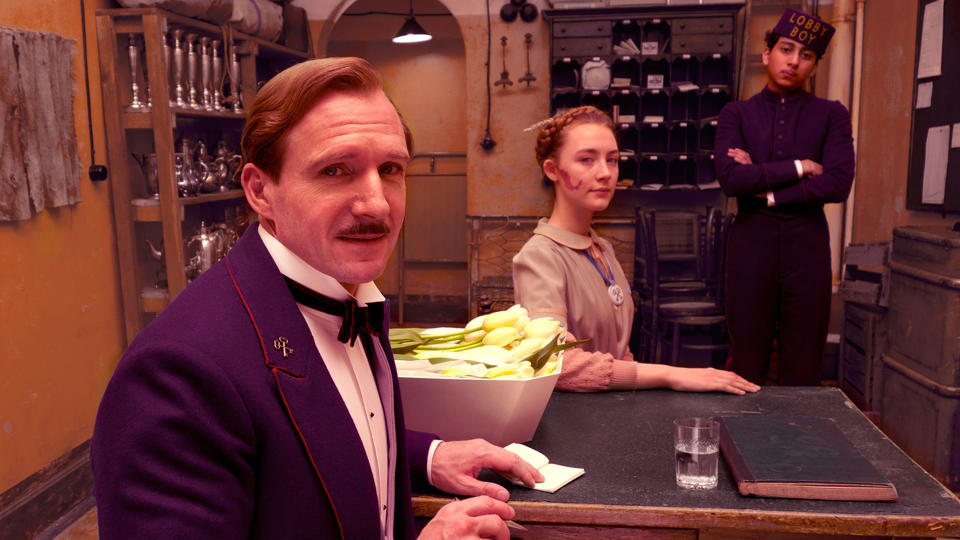
You know the drill by this point. This is yet another of Anderson’s precious dollhouse-and-train-set movies, a Tintin comic brought to life, with all of the usual twee affectations and tics we have come to expect. (If you thought Wes Anderson movies were too white before, this flick is so white it has a ski chase.) And for whatever reason, this time the wall-to-wall bric-a-brac aesthetic just did not connect for me.
Part of the problem, I think, is that Hotel is bereft of what is usually one of the sharpest arrows in Anderson’s quiver: There are no artfully placed pop songs anywhere in this movie, which, now I think on it, is one of the ways his films in the past have been best able to escape their elaborate artifice to establish real emotion or human connection.
But the other, bigger issue here is tone [mild spoilers to follow]: The Grand Budapest Hotel felt to me like it’s heedlessly skating along the surface of tragedy. Even notwithstanding a dead cat joke which put me in a foul temper (too soon), there are stabs at black humor here — chopped off fingers, a decapitation, prison shivvings — which jar with the movie’s antic frivolity, and suggest black humor really isn’t Anderson’s forte. He’s fine at creating one particular, immediately identifiable as “Andersonian” tone, but apparently not so great at modulating it.
Along those lines, not that you can’t or shouldn’t make a comedy about the horrors of World War II, but I found something off-putting about, say, the cutesy alternate-universe Gestapo banners (“ZZ”) fluttering all through the hotel while our heroes are engaged in their latest madcap Keystone Kops chase. I’ve been short of sleep this week, so it may just be that I wasn’t in the mood for it. Still, for me, The Grand Budapest Hotel didn’t take.
